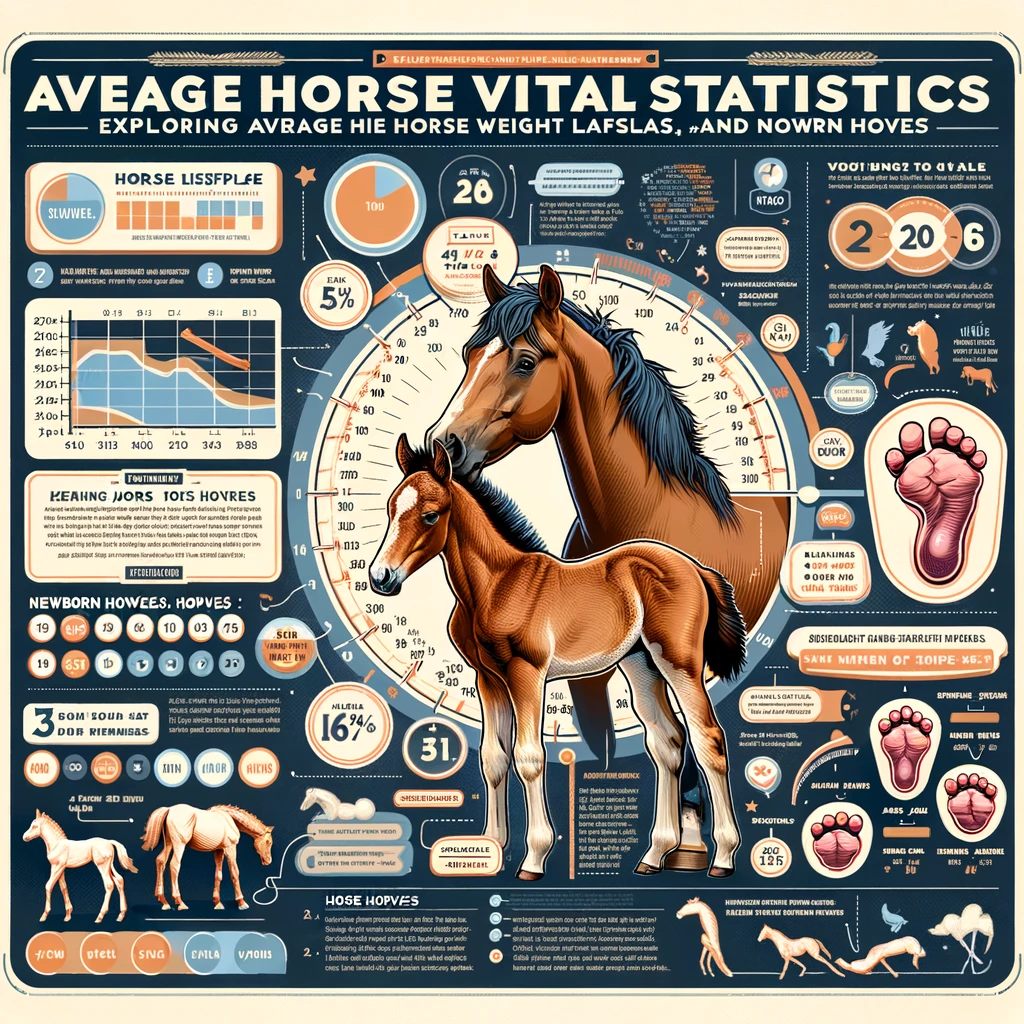It visually presents information on the average weight, lifespan, and unique aspects of newborn hooves of horses.
Introduction
Horses, majestic and powerful creatures, have captivated humans for centuries. From their graceful gallops to their unwavering loyalty, horses are truly remarkable beings. In this article, we delve into key aspects of equine physiology and life, exploring the average horse weight, the enigma of the horse chestnut leg, the longevity of these creatures, and the intriguing phenomenon of newborn horse hooves.
Understanding Average Horse Weight
One of the fundamental aspects of equine health and well-being is their weight. The average weight of a horse can vary significantly based on factors such as breed, age, and individual characteristics. On average, a mature horse can weigh anywhere from 900 to 2,200 pounds. Lighter horse breeds, such as Arabians, tend to be on the lower end of this scale, while heavy draft breeds, like Clydesdales, can tip the scales towards the upper range.
Maintaining an optimal weight is crucial for a horse’s overall health. Proper nutrition, regular exercise, and attentive care from their human companions play pivotal roles in ensuring that these magnificent creatures thrive at a healthy weight.
Decoding the Horse Chestnut Leg
While exploring equine anatomy, one may come across the term “horse chestnut leg.” This is not a reference to a botanical component but rather a condition related to the lower limbs of horses. The horse chestnut leg is characterized by swelling and inflammation in the lower limbs, particularly in the area of the fetlock joint.
This condition is often associated with poor circulation and can be exacerbated by factors such as standing for extended periods or strenuous physical activity. Horse owners and caretakers need to monitor their horses for signs of the horse chestnut leg and take preventive measures, including proper exercise, supportive leg wraps, and regular veterinary check-ups.
How Long Does a Horse Live?
The lifespan of a horse is a topic of great interest for those who have a deep connection with these animals. On average, horses live between 25 to 30 years. However, this figure can vary based on several factors, including breed, genetics, and overall care.
Smaller horse breeds tend to have longer lifespans compared to larger breeds. Ponies, for instance, often surpass 30 years of age, while some larger breeds may have shorter lifespans, typically ranging from 20 to 25 years. Providing proper nutrition, regular veterinary care, and a comfortable living environment all contribute to extending a horse’s lifespan.
How Much Does a Horse Weigh at Birth?
Newborn foals are marvels of nature, delicate yet resilient. Understanding the weight of a newborn horse is crucial for assessing their health and ensuring a smooth start to life. On average, a newborn foal weighs between 55 to 110 pounds, with smaller breeds tending toward the lower end and larger breeds toward the higher end.
It’s essential for horse owners and breeders to monitor the weight of newborn foals and provide the necessary care to support their growth and development. Adequate nutrition for the mare, a clean and safe environment, and timely veterinary attention contribute significantly to the well-being of the foal.
Newborn Horse Hooves: A Glimpse into Early Development
An intriguing aspect of equine physiology is the state of a newborn horse’s hooves. Unlike some other mammals, horses are born with fully formed and functional hooves. Newborn foals are capable of standing and even walking shortly after birth, a testament to the resilience and adaptability of these incredible animals.
The hooves of a newborn foal are soft and pliable, adapting to the surfaces they encounter. As the foal grows, the hooves gradually harden, providing the necessary support for the increasing weight and activity levels. Proper hoof care from an early age is essential for promoting healthy development and preventing issues such as hoof deformities.
Conclusion
In the world of horses, every detail, from average weight to the development of newborn hooves, contributes to their overall well-being. Understanding these aspects is not only crucial for horse owners and caretakers but also enhances our appreciation for these magnificent creatures. As stewards of these animals, it is our responsibility to ensure they lead healthy, fulfilling lives, and by unraveling the mysteries of their physiology, we gain valuable insights into how best to care for and cherish our equine companions.

